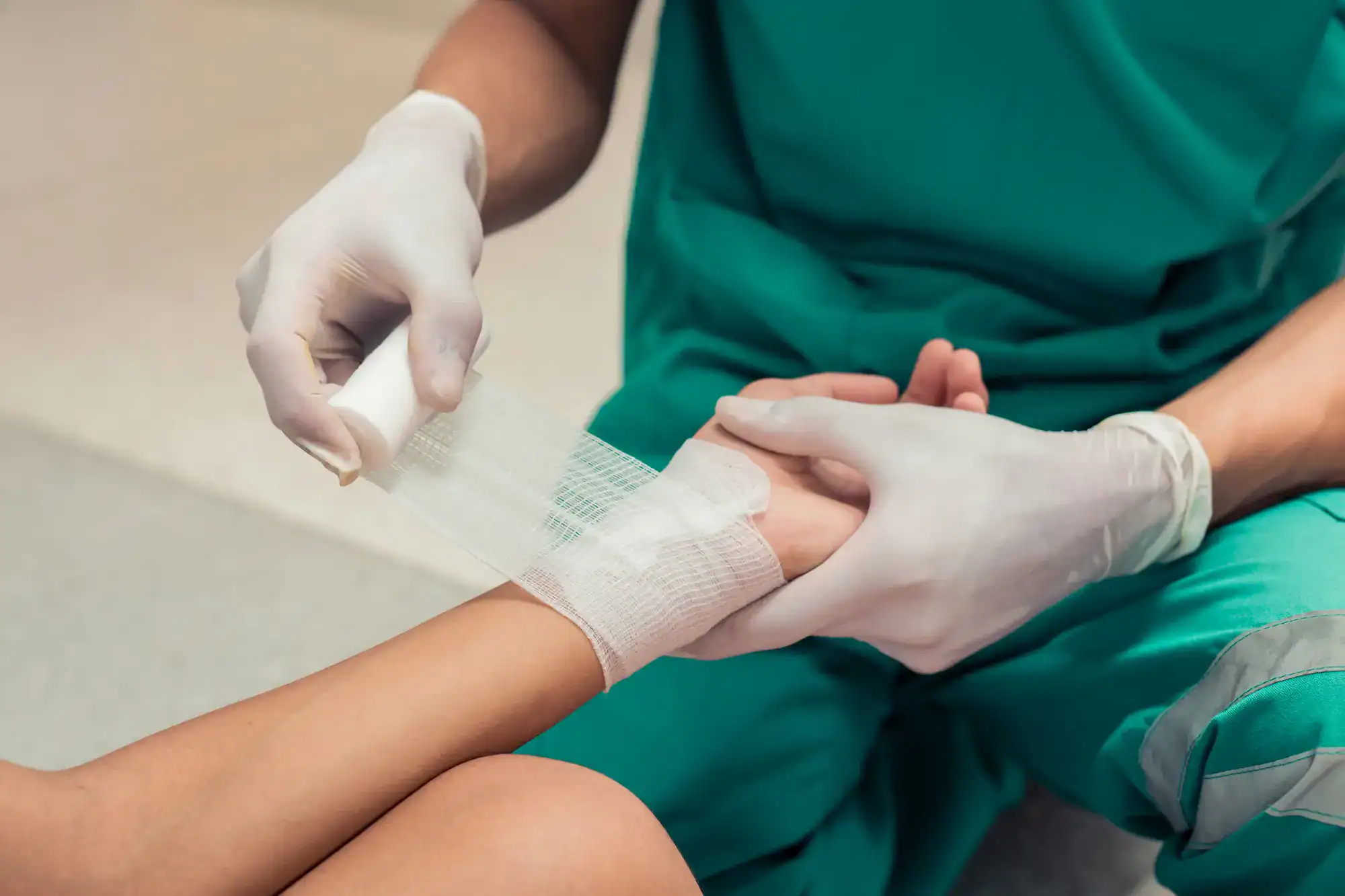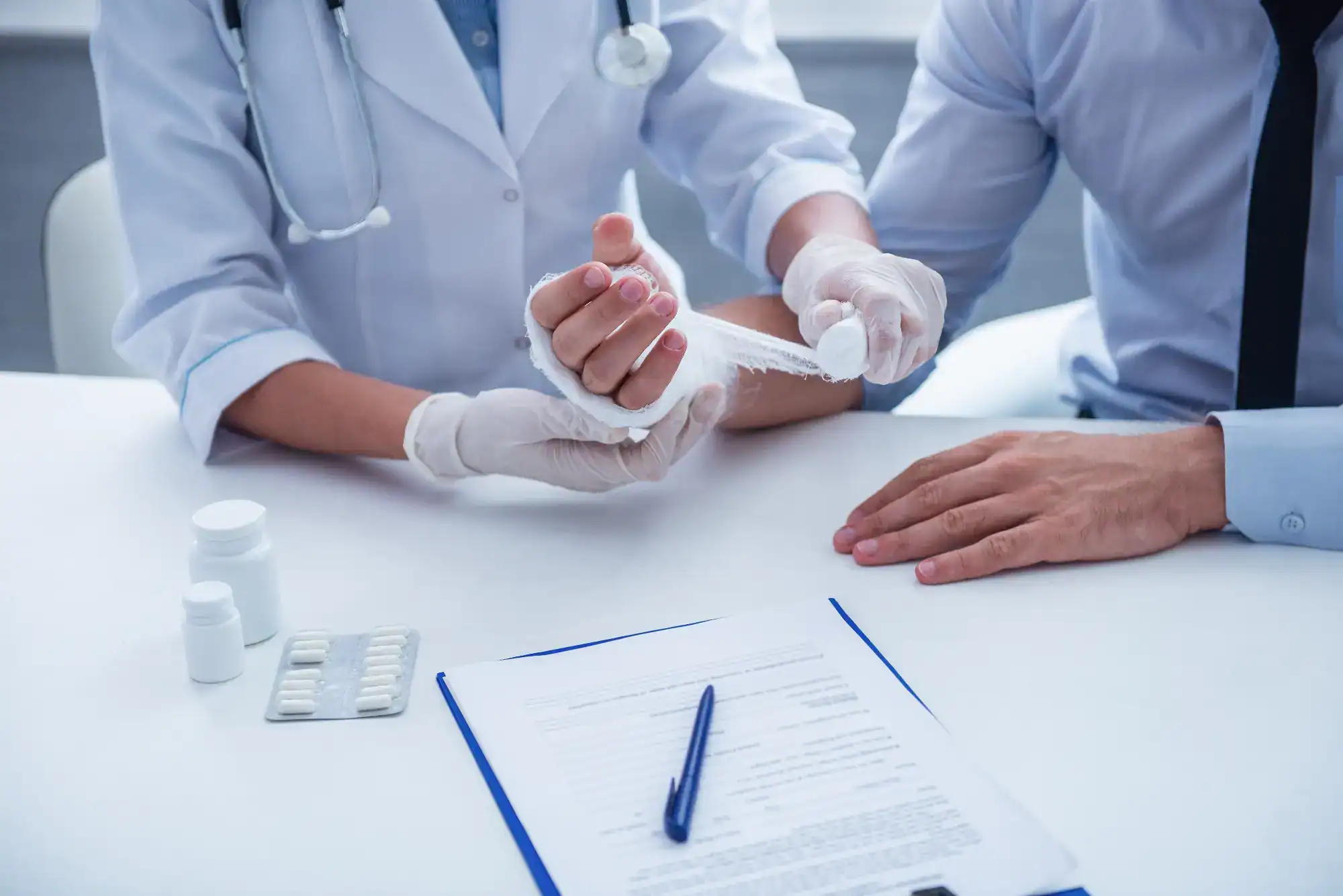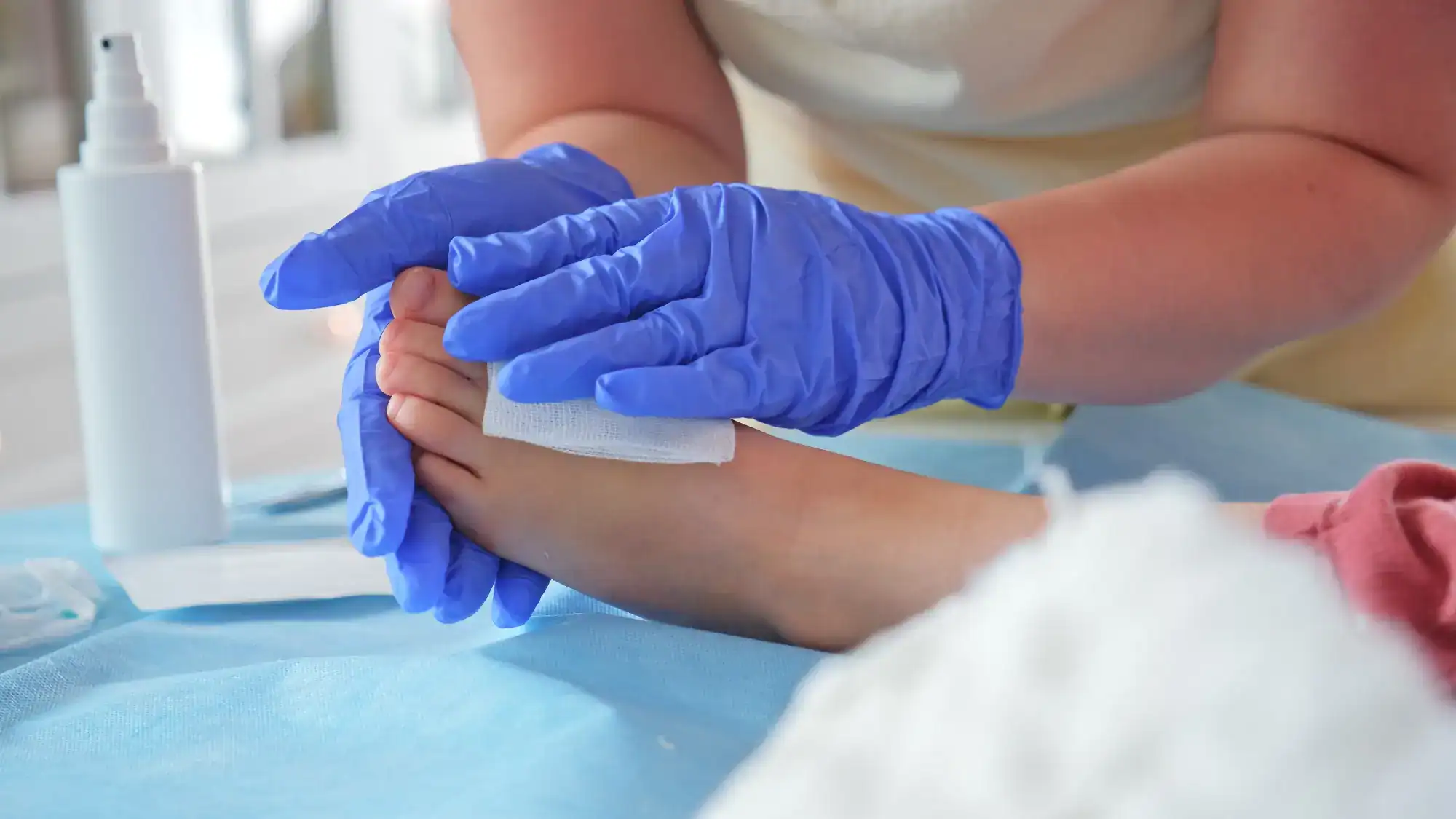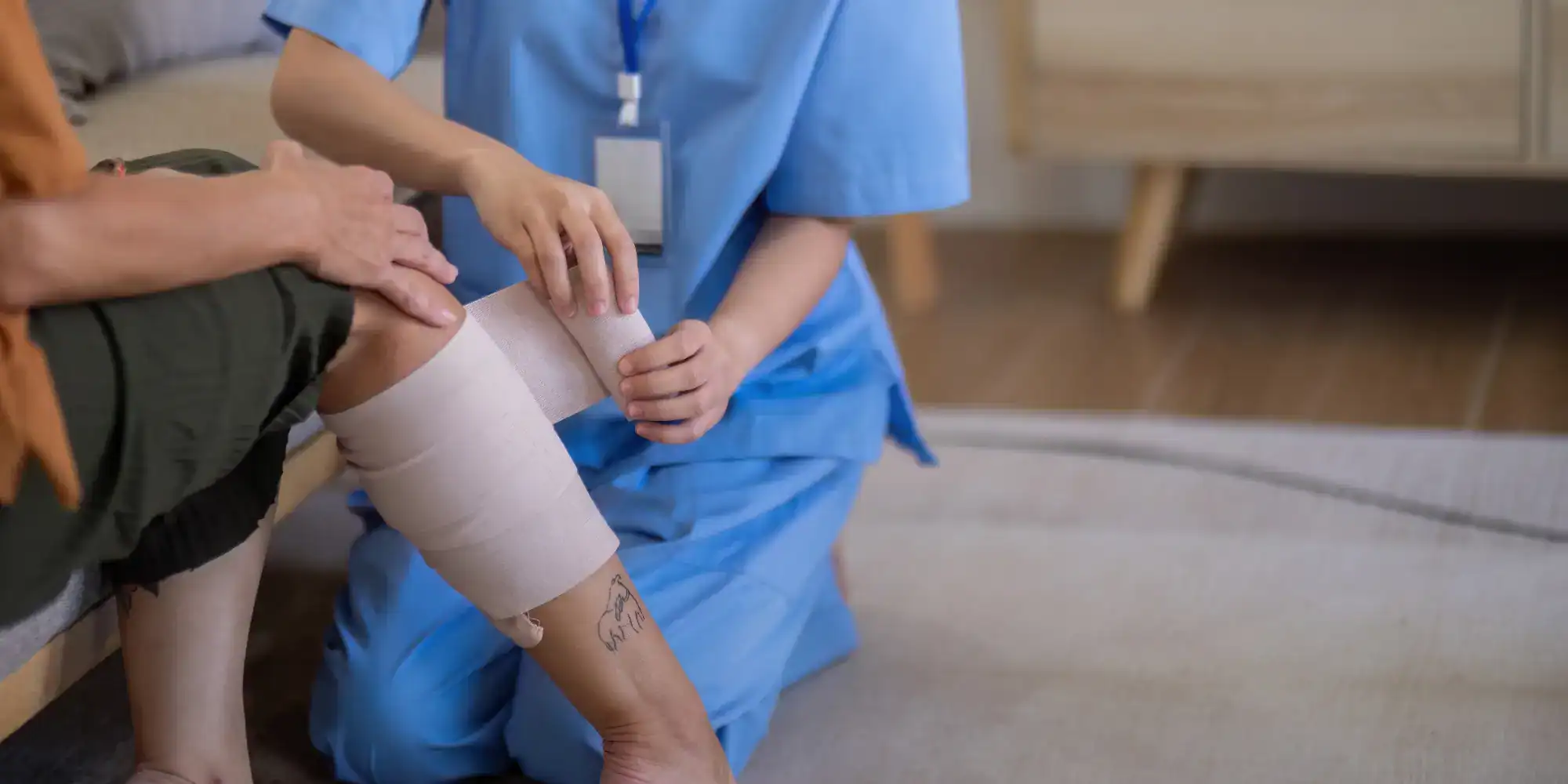Advanced wound treatments that work when others haven’t, right here in Perkins.

See What Our Customers Think

You’ve probably tried everything. Different doctors, various creams, multiple bandage changes. Yet here you are, still dealing with a wound that refuses to heal properly.
That’s exactly why we exist. We specialize in the wounds that won’t respond to standard care. The diabetic ulcers that keep coming back. The surgical sites that aren’t closing. The pressure sores that seem to get worse instead of better.
Our advanced wound care treatments don’t just manage your wound – they create the optimal environment for actual healing. You’ll see measurable progress within weeks, not months. Most importantly, you’ll have peace of mind knowing you’re getting the specialized care your situation requires.
While other clinics treat wounds as a side service, wound care is our entire focus. Every day, we see patients whose wounds weren’t healing with traditional approaches.
We’ve been serving the Perkins community with specialized wound treatments that general practitioners simply can’t provide. Our team understands the unique challenges of Florida’s climate on wound healing and the specific needs of our local patient population.
When your primary doctor says “let’s wait and see,” we’re already implementing advanced therapies that get results.

First, we do a comprehensive wound assessment – not just a quick look, but a detailed evaluation of why your wound isn’t healing. We examine the wound bed, check circulation, assess infection risk, and identify any underlying factors slowing your recovery.
Next, we create your specific treatment protocol. This might include advanced dressings, negative pressure therapy, bioengineered skin substitutes, or other specialized treatments based on your wound type and healing challenges.
You’ll come in for regular monitoring appointments where we track healing progress, adjust treatments as needed, and coordinate with your other healthcare providers. Most patients start seeing real improvement within the first few weeks, with complete healing typically achieved in a fraction of the time compared to standard wound care approaches.

Ready to get started?
Every patient receives a personalized wound care plan designed for their specific condition. We treat diabetic foot ulcers, venous leg ulcers, pressure wounds, surgical site complications, and other chronic wounds that haven’t responded to conventional treatment.
Our Perkins location is equipped with advanced wound care technologies including negative pressure wound therapy, bioactive dressings, and specialized debridement techniques. We work directly with your insurance to ensure treatments are covered and coordinate care with your primary physician and specialists.
You’ll also receive detailed wound care education so you understand how to support healing between visits. We’re not just treating your wound – we’re teaching you how to prevent future problems and recognize early warning signs that need immediate attention.
